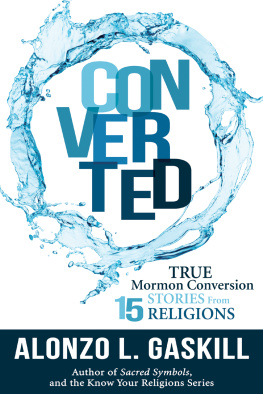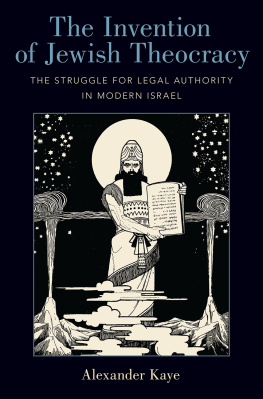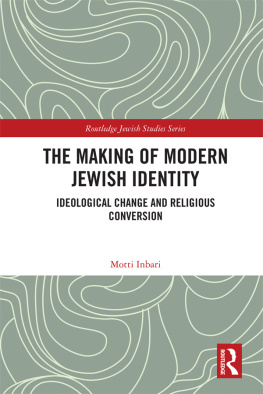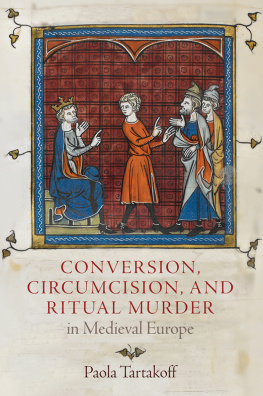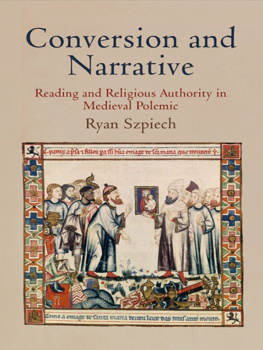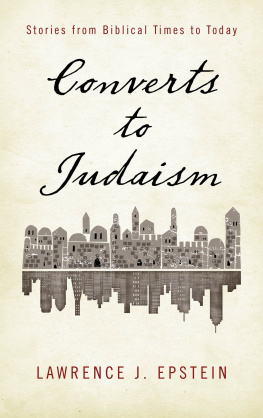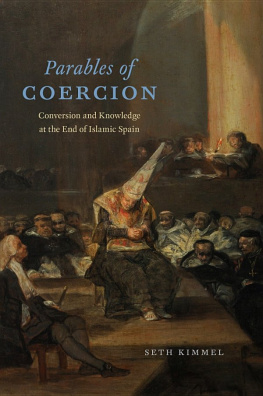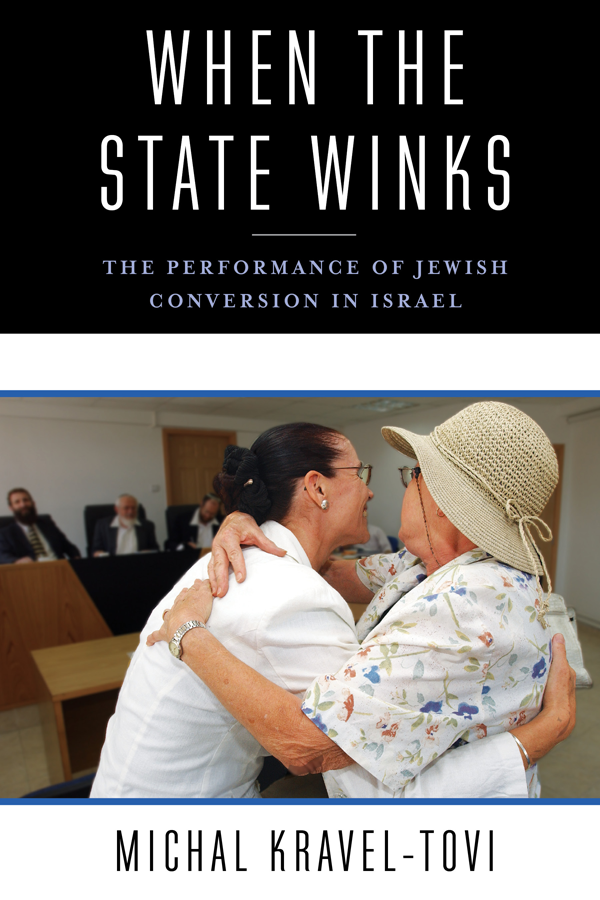Contents
Guide
Pagebreaks of the print version
When the State Winks
RELIGION, CULTURE, AND PUBLIC LIFE
RELIGION, CULTURE, AND PUBLIC LIFE
Series Editor: Katherine Pratt Ewing
The resurgence of religion calls for careful analysis and constructive criticism of new forms of intolerance, as well as new approaches to tolerance, respect, mutual understanding, and accommodation. In order to promote serious scholarship and informed debate, the Institute for Religion, Culture, and Public Life and Columbia University Press are sponsoring a book series devoted to the investigation of the role of religion in society and culture today. This series includes works by scholars in religious studies, political science, history, cultural anthropology, economics, social psychology, and other allied fields whose work sustains multidisciplinary and comparative as well as transnational analyses of historical and contemporary issues. The series focuses on issues related to questions of difference, identity, and practice within local, national, and international contexts. Special attention is paid to the ways in which religious traditions encourage conflict, violence, and intolerance and also support human rights, ecumenical values, and mutual understanding. By mediating alternative methodologies and different religious, social, and cultural traditions, books published in this series will open channels of communication that facilitate critical analysis.
After Pluralism: Reimagining Religious Engagement , edited by Courtney Bender and Pamela E. Klassen
Religion and International Relations Theory, edited by Jack Snyder
Religion in America: A Political History, Denis Lacorne
Democracy, Islam, and Secularism in Turkey, edited by Ahmet T. Kuru and Alfred Stepan
Refiguring the Spiritual: Beuys, Barney, Turrell, Goldsworthy, Mark C. Taylor
Tolerance, Democracy, and Sufis in Senegal, edited by Mamadou Diouf
Rewiring the Real: In Conversation with William Gaddis, Richard Powers, Mark Danielewski, and Don DeLillo, Mark C. Taylor
Democracy and Islam in Indonesia , edited by Mirjam Knkler and Alfred Stepan
Religion, the Secular, and the Politics of Sexual Difference, edited by Linell E. Cady and Tracy Fessenden
Boundaries of Toleration, edited by Alfred Stepan and Charles Taylor
Recovering Place: Reflections on Stone Hill, Mark C. Taylor
Blood: A Critique of Christianity, Gil Anidjar
Choreographies of Shared Sacred Sites: Religion, Politics, and Conflict Resolution, edited by Elazar Barkan and Karen Barkey
Beyond Individualism: The Challenge of Inclusive Communities, George Rupp
Love and Forgiveness for a More Just World, edited by Hent de Vries and Nils F. Schott
Relativism and Religion: Why Democratic Societies Do Not Need Moral Absolutes, Carlo Invernizzi Accetti
The Making of Salafism: Islamic Reform in the Twentieth Century, Henri Lauzire
Mormonism and American Politics, edited by Randall Balmer and Jana Riess
Religion, Secularism, and Constitutional Democracy, edited by Jean L. Cohen and Ccile Laborde
Race and Secularism in America, edited by Jonathon S. Kahn and Vincent W. Lloyd
Beyond the Secular West, edited by Akeel Bilgrami
Pakistan at the Crossroads: Domestic Dynamics and External Pressures, edited by Christophe Jaffrelot
Faithful to Secularism: The Religious Politics of Democracy in Ireland, Senegal, and the Philippines, David T. Buckley
Holy Wars or Holy Alliances: The Return of Religion Onto the Global Political Stage, Manlio Graziano
WHEN THE STATE WINKS
The Performance of Jewish Conversion in Israel
MICHAL KRAVEL-TOVI

Columbia University Press New York
Columbia University Press
Publishers Since 1893
New York Chichester, West Sussex
cup.columbia.edu
Copyright 2017 Columbia University Press
All rights reserved
E-ISBN 978-0-231-54481-8
Library of Congress Cataloging-in-Publication Data
Names: Kravel-Tovi, Michal, author.
Title: When the state winks: the performance of Jewish conversion in Israel / Michal Kravel-Tovi.
Other titles: Religion, culture, and public life.
Description: New York: Columbia University Press, 2017. | Series: Religion, culture, and public life
Identifiers: LCCN 2017011282 | ISBN 9780231183246 (cloth: alk. paper)
Subjects: LCSH: ConversionJudaism. | Jewish converts. | JewsIdentity. | Zionism.
Classification: LCC BM645.C6 K73 2017 | DDC 296.7/14095694dc23
LC record available at https://lccn.loc.gov/2017011282
A Columbia University Press E-book.
CUP would be pleased to hear about your reading experience with this e-book at .
Cover design: Noah Arlow
In loving memory of my dear friend Liat Kastiel zl (19731997).
Liat planned to study anthropology. She was perceptive about people and had a talent for putting the world into words. She would have made a wonderful ethnographer.
Contents
Writing a book involves the unavoidable pleasure of accumulating debts. Both large and small, these debts give a tangible sensenames, faces, conversations, and placesto what generosity is all about. They remind us of the extent to which an endeavor as personal as writing a book depends on the efforts of so many people. My book is no different. In the classrooms at the Hebrew University of Jerusalem, where, back in the 1990s, I first understood that I wanted to become an anthropologist; in the offices of my mentors, where I was always given the space to articulate my ideas (as tentative and fragile as they were); and, finally, in my kitchen, where I sit now writing these acknowledgments, and where I wrote much of this book, with my partner and boys around, I have grown fortunate enough to owe so much to so many people.
I began my undergraduate studies with the intention of becoming a psychologist. However, due mainly to an inspiring encounter with Tamar El-Or and Yoram Bilu, who would later become my mentors, I changed my plans. Each in their own way, Tamar and Yoram sparked my interest in the ethnography of Jewish life. They soon became role models and have remained a source of wisdom. Tamar taught me why ethnography matters and how it allows scholars to write creatively. Yoram provided intellectual guidance, expressed confidence in my work, and allowed me to carve out my own path. For me, he exemplifies how modesty can go hand in hand with fame and shrewd scholarship. The Memorial Foundation for Jewish Culture and the Mandel Scholion Interdisciplinary Research Center in the Humanities and Jewish Studies at the Hebrew University of Jerusalem provided financial support for this project. As a fellow at the center, and a member of the research group on religion and education, I benefited from a vibrant and stimulating academic setting during the critical early stages of this project.
I was fortunate to join the University of Michigans Frankel Center for Judaic Studies as a postdoctoral fellow during Deborah Dash Moores tenure as the centers director. I hope she knows how much I value her generosity to junior scholars, her high standards for scholarship, and the political and disciplinary open-mindedness of her approach to Jewish studies. At the Frankel Center I also met my dearest (and undoubtedly funniest) colleague and friend, Vanessa Ochs. Vanessa was the first among several supportive colleagues to demand that I rework my dissertation into a book manuscript. It is hardly original to describe Jennifer Robertson as a generous colleague and adviser. Many have written this about her, and they are right. I thank her for pushing me to write this book. At Michigan I was also fortunate to meet Josh Friedman, then a PhD candidate in anthropology and now a wonderful young anthropologist. As a talented editor, colleague, and friend, Josh has helped me sharpen my skills as an Israeli author writing ethnography for non-Israeli audiences. The traces of our ongoing dialogue exist throughout the pages that follow, and I look forward to reading his own book.


